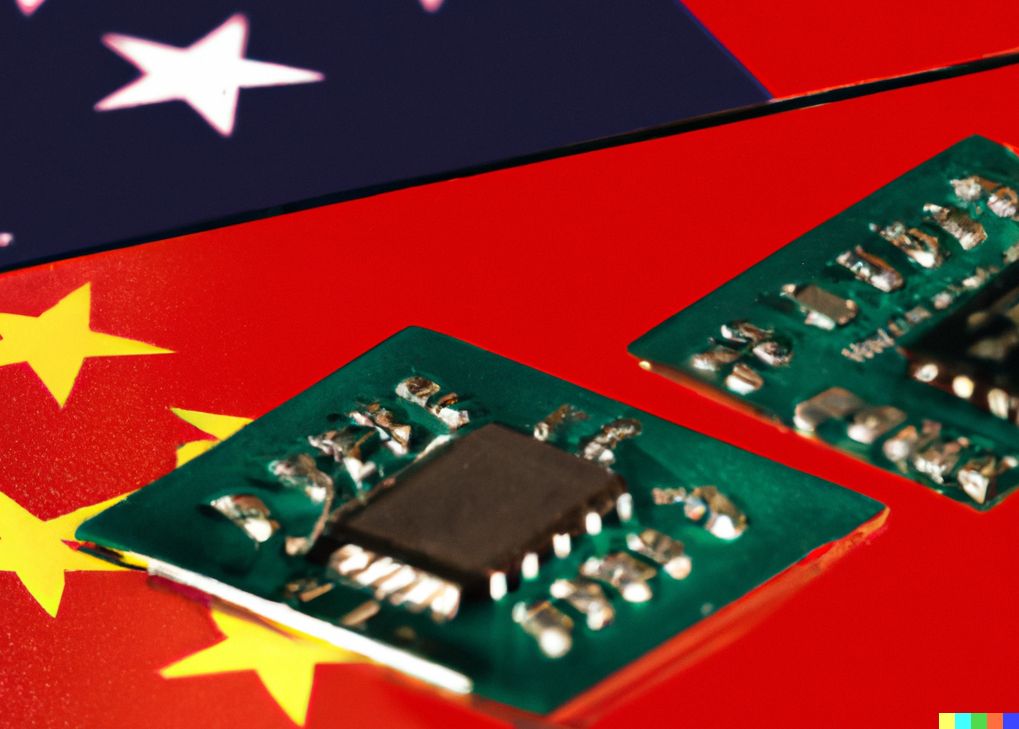Chinese Recruiting Program Targets Foreign-Trained Chip Scientists

The Lede: A Reuters report on Wednesday details the revival of China’s efforts in recent years to recruit elite foreign-trained scientists as the country moves toward semiconductor self-reliance amid U.S.-led export curbs.
What We Know:
- The report provides an overview of Qiming, a program that is overseen by the Chinese Ministry of Industry and Information Technology according to national and local policy documents, online recruitment advertisements, and people with direct knowledge of the matter cited by Reuters. The name translates to ‘enlightenment.’ As with China’s other talent acquisition programs, Qiming targets a mix of overseas Chinese and foreign experts.
- The program recruits from scientific and technological fields that include "sensitive" or "classified" areas, including semiconductors. Awardees are not publicized and the program is absent from central government websites, unlike with its predecessor program. Some of the documents reviewed by Reuters mention Qiming alongside a program called Huoju, which is a longstanding initiative of the Ministry of Science and Technology that focuses on creating clusters of tech companies.
- Qiming also works with recruitment initiatives run by local and provincial authorities in comprehensive government-backed hiring drives involving Chinese chip companies.
- Advertisements for Qiming have been found posted by recruiters on the Chinese platform Zhihu, LinkedIn, and ResearchGate under organizations with names like Beijing Talent Linked Information Technology and Hangzhou Juqi Technology.
- The program favors applicants trained at top foreign institutions, especially those at the doctorate level from U.S. universities such as the Massachusetts Institute of Technology (MIT), Harvard, and Stanford University. It includes generous incentive packages with offers of perks including home-purchase subsidies and typical signing bonuses ranging between 3 to 5 million yuan, or $420,000 to $700,000.
The Background: China previously operated a foreign recruitment program called the Thousand Talents Plan (TTP), but stopped promoting it amid U.S. investigations of scientists working in sensitive areas related to American interests and security. China's chip industry has expanded in recent years, but faces a shortage of skilled workers. There is a sentiment of wariness among many Chinese semiconductor experts overseas of returning due to the country’s political environment and weaker position in chip development compared to the U.S. and other Western countries. Although talent poaching is not illegal in the U.S., university researchers can run afoul of the law if they fail to disclose affiliations with Chinese entities while receiving U.S. government funds to conduct research, illegally share proprietary information, or violate export controls.
Likely Outcomes:
- This program’s generous compensation packages may attract some of the targeted talent from overseas, but the business environment that has emerged in China due to domestic scrutiny and U.S.-led Western measures makes it unattractive and risky for many of these elite experts unless they already had a plan to live in the country. The continuation of these types of programs depend on the conditions of financing and the Chinese economy overall. While China may view the chip industry and other technological areas as vital to national interests, it remains seen whether the results will be worth the costs of attracting talent from abroad in this way.
- Roles within Chinese technology companies operating overseas may be more favorable options, but there remains a risk of policy changes as the industry continues to be a cornerstone of geopolitical competition. The U.S. and Western countries may move to restrict this activity as they coordinate their strategy in the context of this competition with China and work to plug holes in the flow of knowledge and talent.
Quotables:
"Foreign adversaries and strategic competitors understand that acquiring top U.S. and Western talent is often just as good as acquiring the technology itself. When that recruitment creates inherent conflicts of interest or commitment, that can create risks to U.S. economic and national security." – Dean Boyd, spokesperson for the U.S. National Counterintelligence and Security Center
Good Reads:
Insight: China quietly recruits overseas chip talent as US tightens curbs (Reuters)
